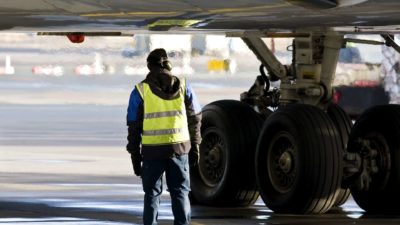The Qantas Airways Limited (ASX: QAN) share price has done incredibly well over the last year, rising by around 40%, as we can see on the chart below.
I was optimistic on the ASX travel share a year ago, but conditions have changed somewhat so it's worth revisiting whether the airline is a buy or not.
Positives
The company's latest update is what investors can use to understand the airline's current situation and its outlook.
On 27 June, Qantas said in an ASX announcement:
Travel demand remains strong and data shows that consumers continue to prioritise travel over other spending categories. The group remains on track to deliver the financial performance for FY23 outlined in its May market update.
That's a good sign because it would be understandable if, after more than a year of extensive travel activity, demand was waning.
In May, the company said that "forward booking trends indicate strong travel demand continuing into FY24. Revenue intakes are at 118% of pre-COVID levels for group domestic and 123% for group international".
Revenue is an important driver of profit, as well as a sign of how much each aircraft is filled by passengers. International capacity is expected to increase from October 2023 onwards, reaching around 100% of pre-COVID levels by March 2024.
Another positive for the airline is that while jet fuel prices are still "elevated", recent falls helped deliver a cost improvement of around $150 million in the second half of FY23.
When Qantas was trying to improve reliability, it implemented an "operational buffer". But the buffer is now rolling off as the industry "stabilises" so spare capacity is becoming revenue generating. Airfares are still expected to remain "materially above pre-COVID levels through FY24, particularly internationally".
FY23 saw the airline allocate around $1 billion for share buybacks. This is supportive of the Qantas share price and helps earnings per share (EPS) in FY24 and beyond.
Finally, the Qantas share price is down around 10% since 1 June 2023, so it's a bit better value than it was before.
Qantas share price negatives
With the large rise of the share price over the past 12 months, the market has now seemingly priced in (a lot of) the effects of travel demand. Will the demand need to become even stronger for the Qantas share price to rise in the shorter term?
While airfares are still elevated compared to pre-COVID times, Qantas said fare levels have moderated from peaks reached in the first half of FY23. If that's the case, it would be too optimistic to think the revenue intake will keep growing alongside capacity increases.
The business may also need to increase spending on aircraft to modernise its fleet, though that is probably partially captured by the low price/earnings (p/e) ratio the ASX travel share is trading on.
It seems higher interest rates haven't hurt the travel demand yet, though it's possible demand could fall if financial pain hits households harder than expected.
Foolish takeaway
The Qantas share price is currently valued at 6x FY24's estimated earnings, according to Commsec numbers. I think Qantas shares could rise from here, but I wouldn't call it a strong buy like it was a year ago. It needs to spend more on aircraft, which would increase costs and decrease the amount of spare cash flow the airline has.








